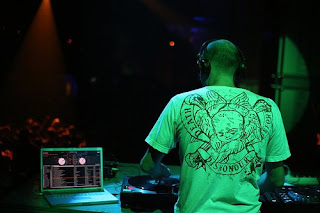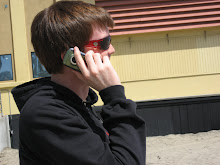
By Jake Corbin
“There’re only two kinds of people in the world: Beatles people and Elvis people. Now Beatles people can like Elvis and Elvis people can like the Beatles, but nobody likes them both equally. Somewhere, you have to make a choice.” – Uma Thurman as Mia Wallace in “Pulp Fiction”
The time to make a choice for Vatican newspaper, L'Osservatore Romano, came Saturday. Its decision: the lads from Liverpool.
The paper—which focuses more on the doings of the Pope than the realm of popular entertainment—ran an article celebrating the 40th anniversary of the Beatles “White Album,” saying the LP is a testament to how creative the group was compared to the “standardized, stereotypical” songs being produced today.
Such high praise coming from a pro-Vatican publication came as a shock to some. Although the Beatles have amassed a large fan base over the years, the Catholic Church, traditionally, has not been a huge fan of the Brit-rockers.
In 1966, during the peak of Beatlemania, the group’s guitarist/vocalist, John Lennon, upset religious goers the world over after declaring the foursome were “more popular than Jesus.”
Needless to say, the church, and many of its followers, did not agree.
L’Osservatore Romano, however, dismissed the remark as nothing more than a youthful joke, saying it was a case of “showing off” and a result of enjoying “unexpected success.”
The newspaper went on to discuss the Fab Four’s “unique and strange alchemy of sounds and words” and referred to the “White Album” as a “magical musical anthology.”
Apparently, time does heal all wounds.
Or, perhaps, the music is simply too good to stay mad forever.
The “White Album” has long been a favorite of fans and critics alike; Rolling Stone rated it the tenth greatest album of all time, calling it “an exhilarating sprawl—some of the Beatles’ most daring and delicate work.” Not surprisingly, the Recording Industry Association of America reports the record is one of the seven highest certified albums of all time.
The masterpiece is so popular in fact that it made a leap most albums cannot—the musical genre jump from rock to hip-hop.
In 2004, Brian “Dangermouse” Burton, using a cappella versions of Jay Z’s “Black Album” combined with beats constructed from the Beatles’ famous record, created the “Grey Album.”
The "mash up" became an Internet sensation (and spawned a cease-and-desist letter from EMI), not only helping the producer/DJ kick-start a career in the music industry but also giving Beatles fans something new to chew on.
Let’s see the “Elvis people” put together a project like that.
p.s. If you don’t understand the title of my column, stop what you’re doing and go listen to the “White Album.”














